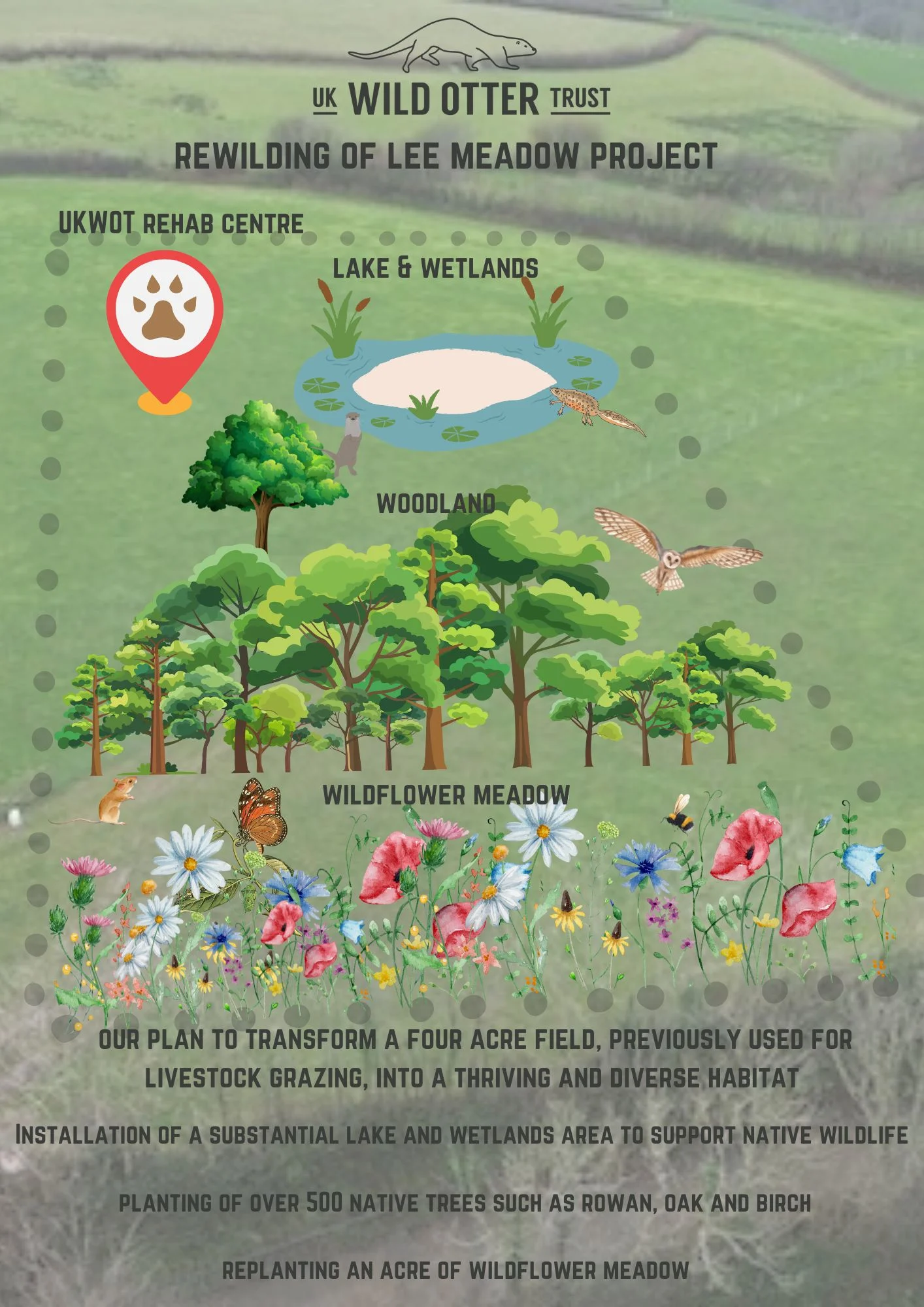Sponsor a Tree at Lee Meadow – Rewilding for Nature
In 2024, we announced our plans to build a brand new Otter Rehabilitation Centre and rewilding area. The ambitious plan will see a sister site to our current otter rehabilitation centre being built and a large portion of land being rewilded to encourage native plants and native wildlife back to the area.
At the beginning of 2025 we held a fundraiser with Aviva Community Fund to raise money for the rewilding part of the project. Our supporters raised over £15,000! Blowing us away with their generous support. Many kind supporters sposnored a tree on the site and you can find their names below.
Do you want to sponsor a tree on the site of our new rehabilitation centre or sponsor a tree in memory of a loved one? For just £20 you can do just that and recieve a certificate. Click the button below to find out more.

Rewilding Lee Meadow – Our Plans
Our plan is to revert what is currently, a 4 acre field of clover previously used for livestock grazing and creating a rich, diverse habitat for many species. In these plans we are going to create a woodland copse of over 500 native trees such as rowen, hawthorn, blackthorn, oak, birch and beech. This will created over an area of one acre.
At the entrance to the meadow, we will be creating and replanting an acre of wildflower meadow to encourage owls and other wildlife to return.
We will then plan, create and action the installation of a large pond that will be approximately 100m x 50m x 1m to encourage previously unseen wildlife, insects and mammals. In addition to this, the pond will act as a water catchment as it will be sited at the far end of the area where the land slopes off naturally and holds water that will assist in preventing it from entering into the valley below. Having the pond will be an important aspect of helping to keep the area below the field drier as well as providing the meadow to drain naturally into the pond where a large amount of water will be held.
We also plan to create a diverse fruit orchard, with apple, cherry, plum, and pear trees, along with flowering cherries. This fruit orchard will create multiple ecological benefits, including encouraging pollinating insects such as bees, wasps, moths, butterflies, hover flies, flies and beetles.
A third of every mouth full we eat is pollinated by these wild pollinators and honey bees in managed hives. These insects are also vital for pollinating wild plants that many species of wildlife rely on for food.
Creating safe havens for bees is an important part of conserving the species. One in ten species of wild bee are facing extinction, with three species already gone extinct in recent decades.
Creating a diverse fruit orchard ensures continuous bloom throughout the growing season, providing a rich and sustained food source for pollinators. This not only attracts bees, but also provides them with a variety of food sources, enabling them to produce high-quality honey uniquely flavoured by the different blossoms. Managed hives will enable the sustainably sourced honey to be distributed to the local community.
Aviva Fundraiser Supporters
1. Lin Sherwood
Aviva Fundraiser Tree Sponsors
1. Bryan and Pam Thorne for their Golden Wedding Anniversary
2. Georgia Truscot
3. Beryl Durham
4. In memory of Geoffrey Neil Crofts
5. Isabel Rogers
6.

